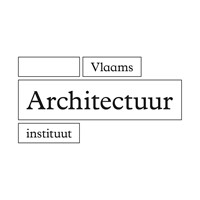Reclaim the city
English below
.............................
gratis, mits inschrijving via partner VAI : Schrijf hier in
De stad is het actieterrein voor sociale bewegingen en sociale transformaties. Sociale acties in de stad, maar ook bezetting van de stedelijke ruimte, impliciet of expliciet, kunnen we zien als kansen voor emancipatie. In de plaats van ze te zien als “onder controle te houden tijdelijke verschijnselen” tonen ze nieuwe stedelijke gebruiken of afwijkende stedelijke rituelen, die nieuwe vormen van sociale organisatie met zich meebrengen. Ze dringen door in het dagelijkse leven of onderbreken de dagdagelijksheid tijdens sociale strubbelingen en activeren zo mogelijkheden voor een emancipatorische commoning. Dit is volgens Stavros Stavrides de toekomst van commons. Urban commoning, niet als een vorm van gedeelde hulpbronnen, maar een collectieve ethos gebaseerd op wederkerigheid en gelijkwaardigheid.
Stavros Stavrides is architect, activist en professor aan de School of Architecture in Athene. Hij is de auteur van een reeks artikelen en boeken die een cruciale rol spelen in zowel theorie als praktijk van de stad als commons.
In deze lezing met aansluitend een debat zal hij aan de hand van Europese en Latijns Amerikaanse voorbeelden aantonen hoe collectieve emancipatieprocessen de toekomst van commoning zal vormgeven.
De presentatie en het debat gaan door in het Engels, maar we voorzien directe vertaling in het Nederlands waar nodig.
Deze lezing betekent het begin van een langdurige samenwerking tussen het Vlaams Architectuurinstituut en Timelab over participatie, architectuur en de stad.
gratis, mits inschrijving via partner VAI : Schrijf hier in
ENG
Reclaim the city :
Urban potentialities and emancipatory futures
Emergent urban communities may reinvent commoning as a practice of sharing based on relations of equality and mutual support. This is a complex process through which new forms of social organization emerge. Urban commoning acquires an emancipatory potentiality when it challenges the everyday routines of social reproduction. Either by permeating everyday life or by creatively interrupting it during urban struggles, urban commoning practices activate urban potentialities.
Common spaces produced by the development of new urban habits and deviant urban rituals are to be understood not as temporary enclaves of otherness but as thresholds which communicate and multiply. By using concrete examples from Europe and Latin America Stavros Stravides will show that explicit and implicit efforts for collective emancipation may construct emancipatory futures of commoning.
Stavros Stavrides, architect and activist, is Professor at the School of Architecture, National Technical University of Athens, Greece, where he teaches graduate courses on housing design (social housing included) and urban design, as well as a postgraduate course on the meaning of metropolitan experience.
He is currently the head of NTUA Lab for the Architectural Design and Communication. Until recently he was director of the NTUA postgraduate Program Research in Architecture: Architectural Design – Space – Culture.
He has done extensive research fieldwork in Brazil, Uruguay, Argentina and Mexico focused on housing-as-commons and on urban struggles for self-management.
Research topics include urban commons, urban struggles, the social experience of metropolitan space, housing, spatial theory, architectural design and planning.
for sale at the Timelab shop during and after the event:
BOOKS
The Politics of Urban Potentiality (2024)
Spatial Patterns of Emancipatory Commoning
This volume examines how urban potentiality emerges in performances that reclaim the city, acting as an emancipatory force when dominant patterns of urban behavior are thrown into crisis. It can result in establishing new habits of inhabiting city space, collective experiences shaping practices of urban commoning, re-inventing community relations, and freeing collaboration from capitalist expropriation. Instead of problematizing such radical change through the modernist belief in heroic unique acts, we need to explore the power dissident performances acquire when repeated. In search of an emancipatory politics of urban potentiality, commoning thus has the ability to become a collective ethos based on mutuality and equality rather than merely a relatively fair way of sharing urban infrastructures.
In this book, the leading social and urban theorist Stavros Stavrides draws on a wide range of classic and historical thought on the urban question and social transformation. Drawing from research in Latin American urban movements, from activist participation in urban struggles in Greece, and citizen initiatives developed in Europe, this book expands the discussion on the potentialities of urban commoning to demonstrate how an emancipatory urban future may be achieved.
free, subject to registration via partner VAI : register here.
deelnemers
Gideon Boie Pieter Brosens Ilse Claes Frederique Hermans Colm Mac Aoidh Ria Martens Juan Martinez Veerle Michiels Eugenia Morpurgo Gerbrand Nootens Marika Piekarczyk Emma Pieters Bert Rogiers Lieven Standaert Kobe Tilley Floor Van Belleghem Karolina van de Velde Hera Van Sande Vera Van Thielen Joke Vandenabeele An Vandermeulen Heleen Verheyden Els Vervloesem
